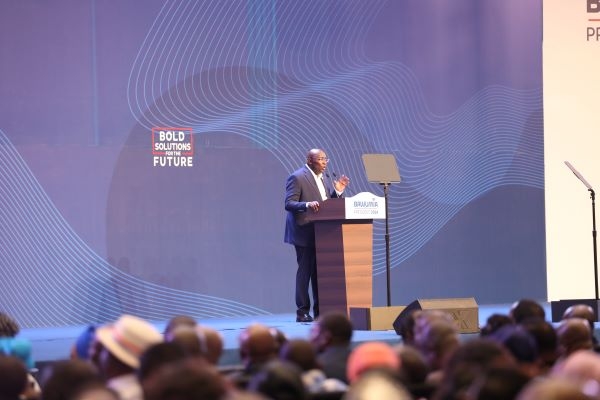The Vice President and Flagbearer of the NPP, Dr. Mahamudu Bawumia has kicked against fiscal indiscipline, which he says is a major contributory factor to macroeconomic instability.
Addressing the nation on Wednesday, February 7, 2024 to unveil his policy and priorities for the nation, Dr. Bawumia said if elected President by Ghanaians, one of his main priorities will be to ensure sustained macroeconomic stability by ensuring fiscal discipline. Dr
To achieve this, heoutlined several measures he will take as President, which include amending the Fiscal Responsibility Act as well as partnering with the private sector to fund projects, to tighten government spending
“Under the two-term administration of His Excellency Nana Akufo-Addo’s government, we have put in place many social safety nets like free SHS, Free TVET, etc. With all these social safety nets in place, my government will now focus on jobs, and wealth creation by the private sector for all Ghanaians.”
“My administration will incentivize the private sector to complement the government in the provision of many infrastructure and other services to reduce government expenditure and improve maintenance. The private sector will be encouraged to build roads, schools, hostels, and houses for government to rent or lease to own. The demand for road construction is massive and this has historically placed a huge burden on the budget.”
“I believe that the private sector should finance the construction and maintenance of roads through PPP concession arrangements. Also, the government will move towards leasing rather than purchasing vehicles, printing equipment, etc. The private sector will have the responsibility for maintaining the equipment.”
“With this approach, the budget can save very significant outright cash expenditure annually from various items across different Ministries, Departments and Agencies. This policy will energise the private sector and create many jobs.”
Dr. Bawumia argued that enhancing the role of the private sector, along with fiscal and administrative decentralisation, improving systems and the way our institutions function, “will lead to greater efficiency; cutting waste and ensuring value for money in procurement.”
The move towards the private sector provision of many public services, Dr Bawumia stressed, would create fiscal space of at least 3% of GDP.
“This represents a major paradigm shift. Additionally, an efficient system of governance will require even fewer ministers. Therefore I would have no more than 50 ministers and deputy ministers.”



